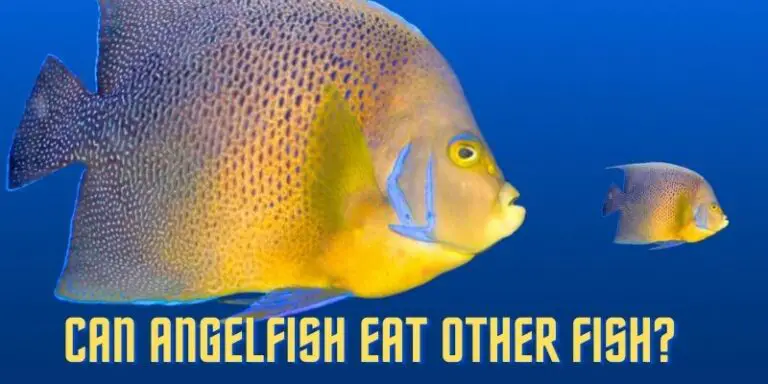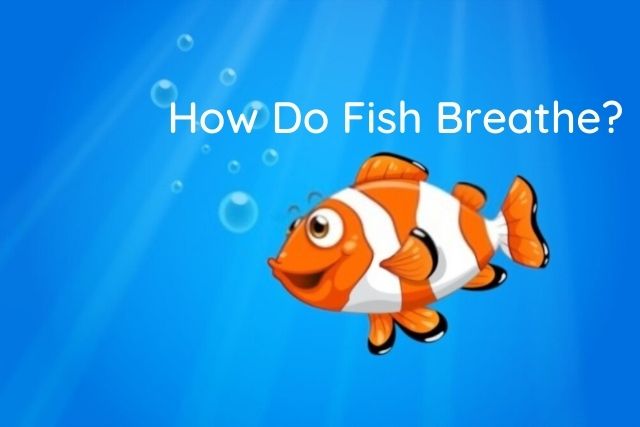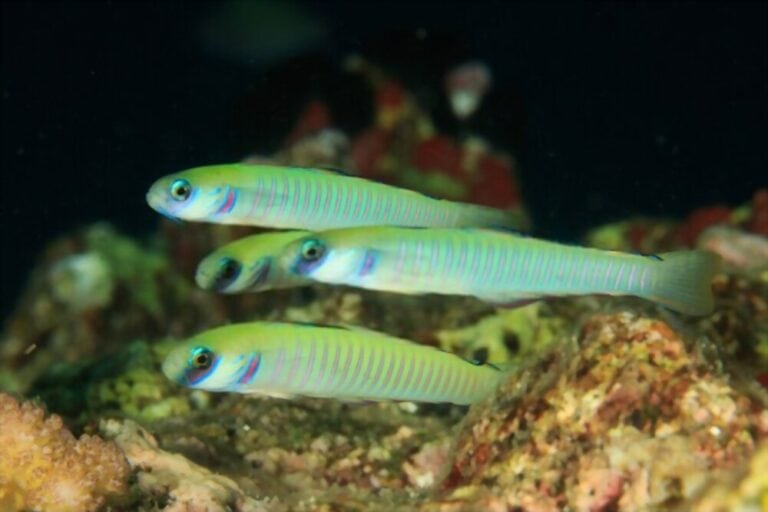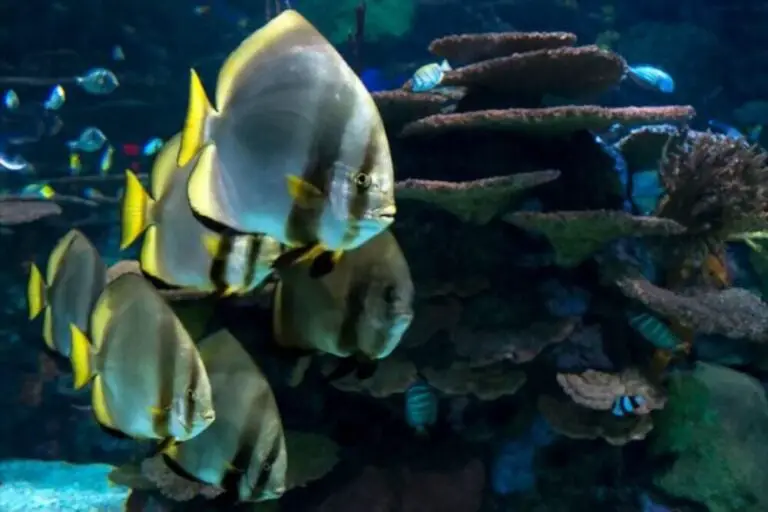Can Fish Drown (Why & How Do Fish Drown)?
Fish can live in water because they have the ability to absorb oxygen in the water. If a red tide occurs in the water and the microorganisms consume all oxygen, the fish will drown in the water due to lack of oxygen.
The way oxygen-rich water is transported to the gills varies depending on whether it is moved or not.
When stopped, the difference between the pressure in the mouth and the external pressure is adjusted by itself, and the water automatically flows into the mouth. Therefore, only certain fish species can drown fish due to lack of oxygen.
How do fish keep alive themselves in the water?
Fish also need oxygen to sustain life as that of human beings, but the lungs of the fish do not work to extract oxygen from the air, such as a person’s lungs. The fish has gills that act to filter the oxygen and remove waste from the water that flows into the gums.
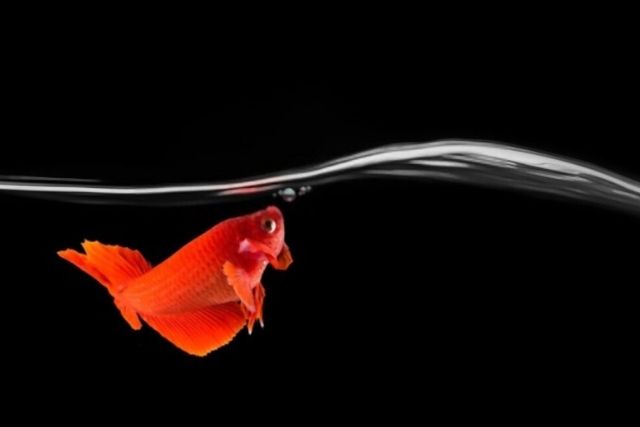
The water will pass through the gills of the fish like the air that constantly passes through the nose of a person. The gums will be responsible for filtering oxygen into the body. In this way, fishes keep themselves alive in the water.
Fish or humans breathe because wanting to bring oxygen into the body and, when exhaling, take carbon dioxide, which is a waste gas from the body, and the important point for the fish to breathe is that the fish breathe with “gills.” The fish’s gills act like the lungs of people in the oxygen intake to purify the blood.
Major parameters of water for keeping fish alive
Water parameters mean the physical, chemical, and biological properties of water. It is essential for fishes, affecting slow or fast growth, death, disease, reproductive system, etc.
Canister Filter Benefits & Major Advantages of Using Canister Filter
Therefore, fishes’ acceptable water quality refers to the water condition that can make the fish live safely.
Acidity & Alkalinity (pH)
| pH Level | Condition |
|---|---|
| 4.0 or lower | It is a dangerous point to the death of fish |
| 4.0-6.0 | Some fish may not die, but the productivity is low. |
| 6.5-9.0 | The appropriate level for fishes (aquatic life) |
| 9.0-11.0 | unsuitable for aquatic life if living for a long time |
| 11 or greater | Toxic to fish |
Hardness
The hardness of water reflects the salty characteristics of water. Its value is the total amount of dissolved salts such as calcium, iron, magnesium, manganese, and aluminum in water.
It mainly contains calcium, magnesium, and iron salts in natural water. Water with high hardness, containing more salts such as calcium and magnesium, is also called hard water. Conversely, water with lower hardness is called soft water.
| Hardness | Water |
|---|---|
| 0 – 75 mg | soft water |
| 75 – 150 mg | Moderate hardness |
| 150 – 300 mg | Hard water |
| 300 mg | l up very hard water |
Carbon dioxide
Fish can withstand high levels of carbon dioxide concentration. However, fish are avoided in water containing carbon dioxide levels higher than 5 mg/l, but most fish can tolerate the amount. Carbon dioxide up to 60 mg/L if there is enough oxygen.
What oxygen level is required for a fish to alive?
The oxygen level that fish need to breathe should be above 5 mg. The oxygen that the fish will be able to breathe must dissolve into the water.
Good water condition, there are few contaminations in the product so that it will dissolve Good oxygen or has a high amount of oxygen Will make the fish fresh and healthy.
How do fish suffocate while in the water?
When there is not a sufficient amount of dissolved oxygen is present, it causes fish to suffocate. Some aquatic animals, such as mammals, Whales, or Dolphins, even if living in water but don’t breathe in the water.
This class will have a body mechanism to store the air that is inhaled for a long time. Making it possible to swim underwater for a long time.
However, they still need oxygen for life. So, there is a rise to the water’s surface to exhale and inhale the air again. If they do not get a proper amount of air from time to time, they will suffocate.
Is it possible to drown a fish?
Probably no, fishes are dying when they do not get a proper amount of dissolved oxygen, not by inhalation of water. So, it is not possible to drown a fish.
When the lungs of fish are filled with water, they do not get adequate dissolved oxygen. As a result, fish drown in regular water.
You can improve your fish’s lifespan by providing the proper care and enough oxygen in an aquarium so that they will have a long lifespan.
Can fish drown if they stop swimming?
Fish can drown technically only if they do not get a proper amount of dissolved oxygen from the water. Some fish species required water to pass through their gills continuously so that they have to keep swimming. They will eventually drown if they stop swimming.
How long does it take for a fish to drown?
If a fish’s gills do not move about 3 to 4 minutes, then fish will suffocate and die quickly. Hence 3 to 4 minutes are enough for a fish to drown. If you change the aquarium water at home, ensure that new water is ready before you take out fishes for transfer.
Natural causes for a fish to drown
There may be several types of reasons that may lead to the drowning of your fish. But natural reasons are the most common that many aquarist experiences while keeping fishes in aquariums. There are mainly two types of natural reasons elaborated below.
1. Oxygen
The first factor is oxygen. Unlike humans who breathe with their lungs, oxygen is a source that fish obtains from the air accounts for only a small portion. The main oxygen comes from water and breathes through the gills.
There are two large gill covers on both sides of the fish head, and the cavity inside is called the gill cavity. There are four gills on each side of the throat of the fish. Each gill is divided into two-gill slices, and the gill slices are composed of many gill filaments.
Many gill pieces are produced on each side of each gill filament, which forms the fish’s respiratory system. Fish get oxygen in the water. When these aquatic organisms and fish maintain a balance, they can grow peacefully.
However, when the organisms in the water reach saturation, the fish’s oxygen is significantly reduced, and the fish have to face challenges to survive in the absence of oxygen. These creatures have some attachments, such as luminous algae.
When it adheres to the fish’s gills, the fish will not breathe because the gill cover cannot be opened, thus falling into suffocation and eventually lead to the fish drown.
2. Swim bladder
The second influencing cause is the swim bladder. Fish are divided into bony fish and cartilaginous fish, and most bony fish have swim bladders.
The swim bladder is very small, but it contains oxygen, nitrogen, and carbon dioxide, with the most oxygen content. In the absence of oxygen, the swim bladder can also be used as an auxiliary respiratory organ to provide oxygen to the fish.
When the fish dives, the swim bladder muscles contract, space becomes smaller, and the air pressure becomes larger to counteract water pressure. The swim bladder grows with the growth of the fish body.
The swim bladder is equivalent to a “lifebuoy” when a fish swims. The fish only needs a minimum of muscle activity when swimming to maintain a stable state in the water without sinking and floating.
However, when the fish sinks beyond its “critical depth” or sinks too fast, the water’s pressure prevents the swim bladder from adjusting.
When the buoyancy of the fish is less than its own gravity, the fish will uncontrollably sink to the bottom. Unable to ascend, eventually fishes drowning due to inability to breathe.
Therefore, even though it is incredible, even fish living in water can drown.
Man-made causes for a fish to drown
I think pollution is the primary root cause. Water contamination is increasing rapidly due to unplanned industrialization and urbanization. Untreated water from chemical factories is sent to the rivers, lakes, and oceans by men, which is the main cause of fish drowning.
Also, when freshwater fish fall into seawater, they die. Saltwater fish also die a little later than freshwater fish, but they die anyway.
This is because they cannot overcome the salty difference in a short time. Another reason is that the fish are bure? There is an airbag called the stomach.
When this airbag bursts, the weight relative to the fish in the water increases, leading to increased energy consumption. If it wasn’t there at first, then suddenly the fish drowns, and it dies. This airbag is bursting due to the chemical water of factories.
Can a fish drown in milk?
Yes, fish can drown in milk. Milk contains not a sufficient amount of acidity, dissolved oxygen, and other molecules compared to water. That’s why fishes do not survive in milk for a long time and drown.
Can a fish drown if pulled backward?
Yes, fishes are drowned when they are pulled backward because water is not passing properly over the fish’s gills, thus not getting the desired amount of dissolved oxygen. This leads to suffocation, and eventually, fish drown.
Do fish need to swim to breathe?
Not all fishes, but some fish species need to swim to breathe, and the best example is sharks. They have to swim continuously in order to survive themselves to get a desirable amount of oxygen to live.
FAQs
Is it possible to accidentally drown a fish?
Generally, it is not possible to drown a fish accidentally. It is only possible by suffocating due to lack of oxygen by not maintaining their gills in the proper direction to the water. Thus, not getting a sufficient amount of oxygen is the main fish drown.
Can fish drown in juice?
Yes, Juice of orange has a 3-4 range of ph. The required range of ph for the survival of fish in the water is 6-8. Most fishes need a 6-8 range to change bicarbonate at its gills for oxygen effectively.
The fish would respond as there is not enough amount of oxygen, PH value of fish blood fall slowly towards acidic due to this fist stops most of its functions and would not survive more than 15-20 minutes, that’s why fish drown in Juice.
Final Words
The gill breathing of fish is achieved by diffusion. Inside the gills, a new plate with dense capillaries is called a microstructure. It is said that carbon dioxide diffuses into the water and oxygen in the water into the capillaries.
The dictionary meaning of drowning means to drown in water. Fish breathe gills, but some fish that lack oxygen supply through the gills have a secondary respiratory organ, and meat that dies in water is a lung that uses a bure as an auxiliary respiratory organ.

